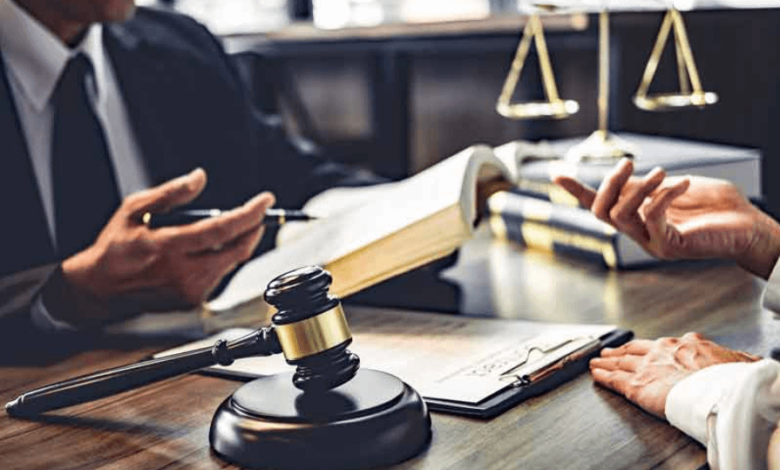Complete Guide to Polygraph Tests in Georgia

Introduction
Polygraph tests, also known as lie detector tests, are often surrounded by both fascination and controversy. In Georgia, polygraph testing plays a notable role in criminal investigations, employment screenings in certain industries, and even private matters. Many people wonder whether these tests are accurate, how they work, and whether they are legally recognized. The concept of a lie detector test is simple: measure the body’s natural reactions to determine whether someone is being truthful. However, the reality is much more complex. This guide will walk you through everything you need to know about polygraph tests in Georgia, from how they work to their costs, accuracy, and legal standing.
What Is a Polygraph Test?
A polygraph, or lie detector test, is a tool used to evaluate truthfulness by recording physiological responses. These include changes in heart rate, blood pressure, breathing, and perspiration. When a person lies, their body may show subtle signs of stress, which the polygraph machine records. During a typical polygraph test in Georgia, the examiner asks a mix of neutral, control, and relevant questions. The data is then analyzed to determine if the subject’s responses suggest deception. While the science is debated, polygraphs continue to be a popular tool because they provide valuable insights during investigations and disputes.
History of Polygraph Testing in Georgia
Polygraph testing has been used across the United States for decades, and Georgia is no exception. The first versions of lie detector tests emerged in the early 20th century, but it wasn’t until the mid-1900s that they became a common tool for law enforcement. In Georgia, police departments and investigators began incorporating polygraph exams to verify statements and identify suspects. Over the years, technology has improved, and examiners now rely on advanced computerized polygraph systems. Despite ongoing debates about accuracy, polygraph tests in Georgia remain relevant in both legal and private matters.
See also: WhatsApp Business Chatbot vs Live Agent: Where Should You Invest?
How Polygraph Tests Work in Georgia
The process of taking a polygraph test in Georgia is straightforward but carefully structured. It begins with a pre-test interview, where the examiner explains the procedure and ensures the subject understands the questions. Sensors are then attached to record the person’s physiological responses. The examiner asks a series of questions, starting with simple ones such as confirming the person’s name or background, followed by comparison questions designed to trigger reactions, and finally, the relevant questions tied to the investigation or issue. Once the session is complete, the examiner reviews the data and interprets the results. In Georgia, polygraph tests usually last between one and three hours, depending on the complexity of the case.
Common Situations Where Polygraph Tests Are Used in Georgia
Polygraph tests in Georgia are used in many situations. Law enforcement agencies rely on them during criminal investigations to gather more information, especially when other evidence is limited. Attorneys may suggest that clients take a polygraph test to strengthen their case or persuade prosecutors to reconsider charges. Private individuals also use lie detector tests for personal matters, such as relationship disputes or family issues. Employers in certain sensitive fields may use polygraph testing for employee screenings or internal investigations. While not as common in everyday jobs, polygraph use is well established in Georgia’s security and law enforcement sectors.
Accuracy of Polygraph Testing
A key question surrounding polygraph tests in Georgia is whether they are truly accurate. Research suggests that polygraph accuracy can range between 70% and 90%, depending on the examiner’s expertise and the conditions of the test. However, accuracy is not guaranteed. Some people may produce false positives simply because they are nervous, while others may produce false negatives if they manage to stay calm under stress. This has led many experts in Georgia and beyond to caution against using polygraphs as the sole form of evidence. Still, when combined with other investigative methods, polygraph tests can be a valuable tool for uncovering truth.
Benefits of Polygraph Testing in Georgia
Despite debates about accuracy, polygraph tests offer several benefits. In Georgia, individuals accused of wrongdoing sometimes choose to take a polygraph test voluntarily to demonstrate their honesty. In some cases, passing a lie detector test can improve credibility in the eyes of investigators, employers, or even family members. Polygraph tests also serve as an investigative aid, giving law enforcement additional leads when solving cases. For employers in certain industries, polygraphs help ensure trust and reliability among staff members. Even though not legally binding, the results can still carry persuasive value in many contexts.
Cost of Polygraph Tests in Georgia
For individuals considering a polygraph test in Georgia, cost is another important factor. Private polygraph tests usually range from $300 to $600 per session, depending on the examiner and the complexity of the case. Specialized exams may cost more, especially if they involve sensitive issues or extended sessions. Law enforcement-administered tests are generally free of charge but only available during official investigations. For many people, the cost of a private lie detector test is a worthwhile investment, especially if it helps prove their honesty or strengthen a legal defense.
Choosing the Right Polygraph Examiner in Georgia
If you decide to take a polygraph test, selecting the right examiner is crucial. In Georgia, many professional examiners are certified by organizations such as the American Polygraph Association (APA). Choosing a certified examiner ensures that the test follows ethical and professional standards. Before scheduling a test, it is wise to check the examiner’s experience, credentials, and reviews from previous clients. A skilled examiner can make a significant difference in the accuracy and fairness of the results, reducing the chances of misinterpretation.
The Future of Polygraph Testing in Georgia
As technology advances, the field of lie detection continues to evolve. While polygraph testing remains the most common method in Georgia today, researchers are exploring other techniques such as brainwave monitoring, eye-tracking, and voice stress analysis. These newer methods aim to improve accuracy and reduce bias. In the future, Georgia residents may see these technologies supplement or even replace traditional polygraph tests. For now, however, the polygraph remains an important tool in the state’s investigative and legal landscape.
Location in Georgia
- Lawrenceville – 1670 McKendree Church Rd, Building 300-B, Lawrenceville, GA 30043
- Roswell – 570 West Crossville Road, Roswell GA 30075
- Oakwood – 4327 Mundy Mill Road, Oakwood, GA 30566
- Atlanta – 3355 Lenox Rd NE, Atlanta, GA 30326
- Newnan – 9 W Broad St, Newnan, GA 30263
- Lilburn – 680 Hillcrest Rd NW, Lilburn, GA 30047
- Savannah – 22 Bull St, Savannah, GA 31401
Conclusion
Polygraph tests in Georgia play a unique role in both legal and personal contexts. While the lie detector test is not perfect and often faces criticism regarding accuracy, it continues to be a valuable tool when used carefully. Law enforcement agencies, attorneys, and private individuals alike turn to polygraph testing to gain insights that might otherwise remain hidden. Understanding how polygraph tests work, their costs, benefits, and limitations is essential for anyone considering taking one. In Georgia, the polygraph may not decide court cases, but it still has the power to influence investigations, relationships, and trust.




